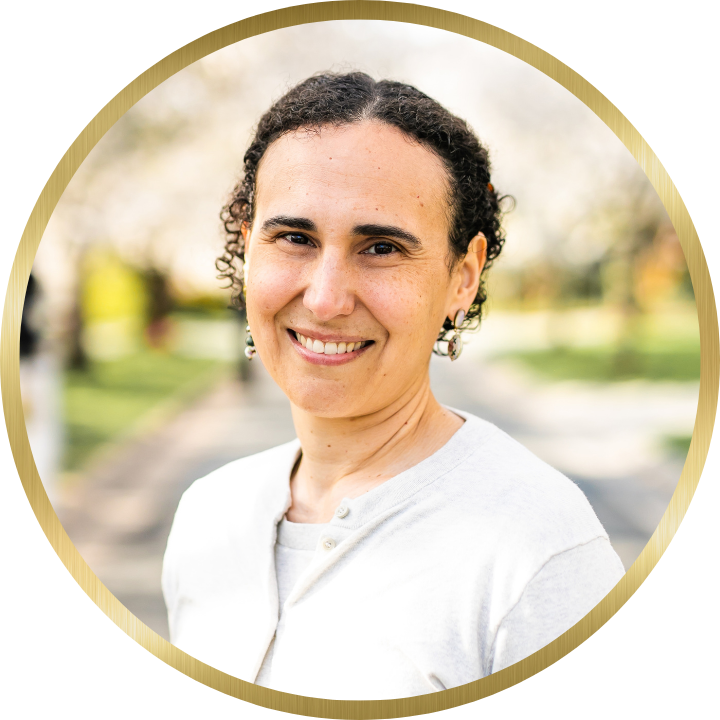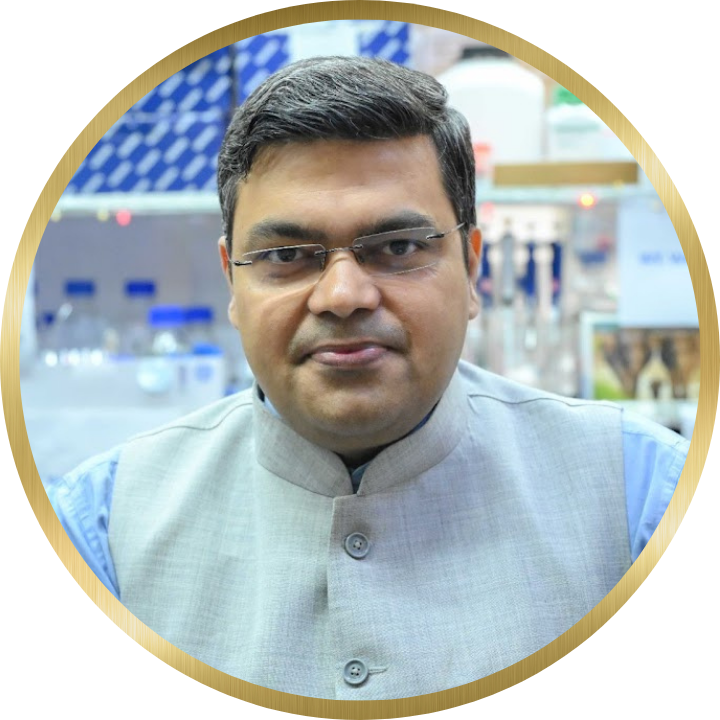
-
In recognition of the Conference’s lasting connection with Lorne, the “Diversity and Inclusion” sub-committee proposed to fund the use of an artwork that would reflect our respect for the region and its community. We are aware of the Aire River massacre of Gadubanud people and dispersal of the Aboriginal people of the Otway Ranges. We extend our respect to the continuing community of the Eastern Maar people, the traditional owners of south-western Victoria.
Maree Clarke is a celebrated Mutti Mutti/Wamba Wamba/Yorta Yorta/Boonwurrung artist who has been living and working in Naarm/Melbourne for the last three decades. The artist has had a long association with the arts community in Lorne, including participating in the Lorne Sculpture Biennale: Spirit of Place in 2021 with her land-based artwork, Remember Me – an installation utilising the native trees lining the path to Lorne’s pier to reflect – both literally and figuratively – upon the number and diversity of the 38 Indigenous tribes/languages in the state of Victoria.
Maree has been instrumental in the revification of traditional cultural material including river reed necklaces, which were given as a sign of friendship and safe passage through Country. Maree’s contemporary supersized 5Om long river reed necklaces also reflect the enormity of loss of Indigenous land, language and cultural practices.
More recently, Maree’s interest in the river reed has seen her consult and collaborate with the University of Melbourne’s Histology Platform, examining the microscopic structure of river reed cells to consider the micro systems of material memory, place and space.
Please note conditions and/or copyright by-line to accompany the reproduction:
Copyright Maree Clarke, courtesy the artist and Vivien Anderson Gallery, Melbourne
The following Artwork Credit will also appear in print and digital publication:
Maree Clarke, now you see me: seeing the invisible #38 2023, coloured microscopy image.
Welcome to the 51st Lorne Conference on Protein Structure and Function, taking place on February 8-12, 2026 in Lorne at the Mantra Hotel. We are excited to see our friends and colleagues for an exciting program!
Make sure you are subscribed to our mailing list and follow the event on Bluesky
Submissions & Registration NOW OPEN
🌟
Submissions & Registration NOW OPEN 🌟
2026 Invited Speakers
-

Prof Ruchi Anand
INDIAN INSTITUTE OF TECHNOLOGY BOMBAY
Read More
Ruchi Anand received her Ph.D. in Chemistry and Chemical Biology from Cornell University and thereafter went on to do her postdoctoral work at the Memorial Sloan Kettering Cancer Center and the University of Pennsylvania. She joined the Indian Institute of Technology Bombay (IIT Bombay) in 2008 and currently serves as an Institute Chair Professor and Head of the Department of Chemistry. Her research blends X-ray Crystallography, Cryogenic electron microscopy, and biochemical tools to study molecular mechanisms relevant to human health, focusing on antimicrobial resistance and biosensor development. She is currently on the Editorial Advisory board of ACS Sensors, Journal of Physical Chemistry (A/B/C), Journal of the American Chemical Society (JACS) and is an Associate Editor of ACS Biochemistry. She is an India Alliance DBT-Wellcome Trust Senior fellow and recently received the Sun Pharma Science Research Fellowship for her work in the field of Pharmaceutical Sciences. She is also the elected fellow of all the three National Science Academies in India (FNA, FASc and FNASc).
-

Dr Christopher Barnes
Stanford University
Read More
Dr. Christopher Barnes is an Assistant Professor of Biology and Sarafan ChEM-H Institute Scholar at Stanford University. Before arriving to Stanford, Dr. Barnes earned degrees in chemistry and psychology from the University of North Carolina at Chapel Hill, and completed his PhD thesis in molecular pharmacology at the University of Pittsburgh. More recently, he completed his postdoctoral work at Caltech in the lab of Dr. Pamela Bjorkman, where he utilized structural biology techniques to help define human immune responses to HIV and COVID. His significant contributions to our understanding of antibody-antigen interactions has earned him such prestigious recognition as an HHMI Hanna Gray Fellow, Burroughs Wellcome PDEP fellow, Chan Zuckerberg Biohub investigator, Rita Allen Foundation Fellow, and more recently, a Pew Biomedical Scholar Fellow. Now, his laboratory combines structural, engineering, and in vivo approaches to investigate viral-host interactions to guide development of new technologies and therapies to mitigate emerging viruses that have the potential to cause the next pandemic.
-

Prof Hagan Bayley
The University of Oxford
Read More
HAGAN BAYLEY is the Professor of Chemical Biology at the University of Oxford. A major interest of his laboratory is the development of engineered protein nanopores for stochastic detection, including single-molecule covalent chemistry and ultrarapid biopolymer sequencing. Recently, the Bayley lab has developed techniques for the fabrication of 3D tissues, both living and synthetic. In 2005, Professor Bayley founded Oxford Nanopore, which has manufactured the portable MinION and other DNA/RNA sequencers. In 2011, he was elected a Fellow of the Royal Society.
-

Prof David Drew
STOCKHOLM UNIVERSITY
The EMBO Keynote Lecture
Read More
David Drew is a New Zealand–born structural biochemist who pioneered the use of GFP as a folding reporter for membrane protein expression during his PhD at Stockholm University. After an EMBO postdoctoral fellowship at Imperial College London, he established his own research group there as a Royal Society University Research Fellow, focusing on GLUT glucose transporters and Na⁺/H⁺ exchangers. In 2013, he returned to Stockholm University, where he is now resides as a Wallenberg Scholar.
Internationally recognized for developing GFP-based screening methods and elucidating mechanisms of SLC transporters —particularly GLUTs and Na⁺/H⁺ exchangers—Drew has advanced our understanding of small-molecule transport. His work has been honored with several distinctions, most notably the Göran Gustafsson Prize in Chemistry, the Arrhenius Medal, ERC Consolidator and Advanced Grants (2018, 2024), and election to EMBO and the Royal Swedish Academy of Sciences.
-

Prof Michael Hecht
Princeton University
Read More
Michael Hecht grew up in New York City. He received a BA in Chemistry from Cornell, where he did research in the laboratory of Harold Scheraga, one of the pioneers of protein chemistry. He then moved to MIT, where he earned a Ph.D. in Biology in the laboratory of Robert Sauer. He did post-doctoral research at Duke in labs of David and Jane Richardson, where he worked on one of the first de novo designed proteins. In 1990, Hecht joined the faculty at Princeton, where is a Professor of Chemistry and teaches courses ranging from Introductory General Chemistry to graduate seminars on Protein Folding and Design.
Research in the Hecht lab spans the interface between Chemistry, Biology, and Engineering. Our work in Synthetic Biology includes projects ranging from the design of novel proteins to the construction of artificial genomes. Through this research, we explore the possibility
of sustaining life using molecular parts (genes & proteins) that did not evolve nature but were designed ‘from scratch.’In addition to teaching and research, from 2010 through 2018, Hecht was the Master/Head
of Forbes College, one of the undergraduate residential colleges at Princeton.When not at Princeton, Hecht skis, in-line skates, hikes, and does cross-country road trips. A friend noted that Hecht is a ‘hippie road tripper’ who took time off to get tenure at Princeton.
-

Prof John Kuriyan
VANDERBILT UNIVERSITY
Read More
John Kuriyan earned his Ph.D. in 1986 from the Massachusetts Institute of Technology, working under the supervision of Gregory A. Petsko and Martin Karplus (Harvard University). He was appointed to the faculty of The Rockefeller University in 1987 and promoted to full professor there in 1993. In 1990, he was appointed as an investigator of the Howard Hughes Medical Institute. In 2001 Kuriyan moved to The University of California, Berkeley, as Distinguished Professor of Molecular and Cell Biology and Chemistry and continued as an investigator of the Howard Hughes Medical Institute. He joined Vanderbilt University in 2023 as Dean of the School of Medicine Basic Sciences.
Kuriyan studies the enzymes and molecular switches driving cell signaling and DNA replication. His lab combines structural biology with biochemical, biophysical, and cellular analyses to reveal how these proteins work. His work on tyrosine kinases—Src-family, Abl, and EGFR—has informed cancer drug design, explaining how the Novartis drugs Gleevec and Scemblix disable oncogenic Abl. His lab has also determined the structural basis for high-speed DNA replication.
Kuriyan is a member of the U.S. National Academy of Sciences, the American Academy of Arts and Sciences, a Foreign Member of The Royal Society of London, and the U.S. National Academy of Medicine.
-

A/Prof Tzviya Zeev-Ben-Mordehai
The Utrecht University
Read More
Tzviya Zeev-Ben-Mordehai is an Associate Professor at Bijvoet Centre for Biomolecular Research of the Utrecht University in the Netherlands.
An expert in cellular structural biology of mammalian gametes and structural biology of membrane proteins. Zeev-Ben-Mordehai received her PhD from the Weizmann Institute of Science in 2008. In 2015 she established her group in the Division of Structural Biology of Oxford University. Since 2017 her group is part of Bijvoet Centre for Biomolecular Research of the Utrecht University.
Her group combines biochemistry, biophysics and advanced cryo-electron microscopy to unravel the molecular basis of fertilization. Among the group achievements are the first in-cell structures of mammalian sperm flagella (EMBO J 2021 PMID 33694216), structure of conserved protein arrays that tether mitochondria to the underlying cytoskeleton (PNAS 2021 PMID 34737233). By developing a cryo-electron microscopy single-particle-analysis approach that allows resolving atomic resolution structures of multi-protein complexes without isolating them from the cell, the group resolved the native axonemal doublet microtubules structure from sperm (Cell 2023 PMID 37327785, Nature 2025 PMID 39743588).
Zeev-Ben-Mordehai is a recipient of a Wellcome Trust and The Royal Society Sir Henry Dale Fellowship (2015), NWO START-UP (2018), ERC-consolidator grant (2023) and an NWO-Vici grant (2025).
-

Prof Simon Newstead
University of Oxford
Read More
Simon Newstead completed his undergraduate studies in Biochemistry at the University of Bath before moving to the University of St Andrews in Scotland to pursue his PhD in protein crystallography under Professor Garry Taylor. From 2004 to 2009, Simon worked with Professor So Iwata at Imperial College London, focusing on determining the structures of proton-coupled peptide transporters. While at Imperial College, Simon developed the MemGold family of membrane protein crystallography screens. In 2009, Simon moved to the Department of Biochemistry at the University of Oxford to establish his independent research group, which focuses on the mechanisms underpinning drug and nutrient transport in the human body. In 2022, Simon was promoted to the David Phillips Professorship of Molecular Biophysics and the Theme Head for Structural Biology and Molecular Biophysics. He is also a member of the Kavli Institute for Nanoscience Discovery and a Professorial Fellow at Corpus Christi College.
-

Dr Lauren Porter
National Institutes of Health
Read More
Dr. Lauren Porter is an Earl Stadtman Tenure-Track Investigator and Distinguished Scholar at the U.S. National Library of Medicine, National Institutes of Health. Her research focuses on computational identification and experimental characterization of fold-switching proteins, which challenge the one-sequence-one-structure paradigm by remodeling their secondary and tertiary structures and changing their functions in response to cellular stimuli. Before starting her lab at NIH, Dr. Porter did postdoctoral work at HHMI, Janelia and the University of Maryland and did her Ph.D. work with George Rose at Johns Hopkins university. Dr. Porter lives in the Washington D.C. suburbs with her husband and two children.
-

Prof Dame Carol Robinson
PROTEINS 2026 Leach Lecture
The University of Oxford
Read More
Carol Robinson is the Dr Lee’s Professor of Chemistry at the University of Oxford and is the Founder Director of Oxford’s Kavli Institute for Nanoscience Discovery. She is recognised for establishing mass spectrometry as a viable technology to study the structure and function of proteins. Carol graduated from the Royal Society of Chemistry in 1979 and completed her PhD at Cambridge University. After a career break of eight years to focus on her family, she became Professor of Mass Spectrometry at Cambridge, returning to Oxford in 2009 to take up her current position. In 2016, she co-founded OMass Therapeutics (Omass.com) with a number of postdoctoral research associates from her laboratory.
Her work has attracted numerous awards including the 2022 Benjamin Franklin Medal in Chemistry, the 2022 Louis Jeantet Prize for Medicine, and most recently the 2023 ASMS John B. Fenn Award for a Distinguished Contribution in Mass Spectrometry, and election to the American Philosophical Society. Carol is the former President of the Royal Society of Chemistry, a Foreign Associate of the National Academy of Sciences USA and an International Honorary Member of the American Academy of Arts and Sciences. She was appointed DBE in 2013 for services to science and industry.
-

Prof Rina Rosenzweig
Weizmann Institute of Science
Read More
Prof. Rina Rosenzweig received her BSc in Chemistry and PhD in Biochemistry from the Technion - Israel Institute of Technology, followed by postdoctoral training at the University of Toronto with prof. Lewis E Kay. She joined the Weizmann Institute of Science in 2016, where her group investigates molecular chaperones and protein homeostasis using advanced NMR spectroscopy. Her research focuses on how chaperone networks recognize, remodel, and prevent the aggregation of misfolded proteins, with particular emphasis on mechanisms underlying neurodegenerative diseases.
Prof. Rosenzweig is the vice president of the Israeli Society of Biochemistry and Molecular Biology and has been awarded a number of academic honors, including the Hestrin Prize for Excellence in Biochemical Research (2021), The ERC starting and consolidator grants (2018 and 2024) the Russell Varian Young Investigator Award in Magnetic Resonance (2022), the ICMRBS Founders’ Medal (2024), and the Blavatnik Award for Young Scientists in Chemistry (2023), honoring her discoveries on the regulatory mechanisms by which chaperones combat protein aggregation.
-

Dr Arun Shukla
Indian Institute of Technology Kanpur
Read More
Dr. Arun Shukla obtained M.Sc. in Biotechnology from the Jawaharlal Nehru University in New Delhi and pursued his Ph.D. in the Department of Molecular Membrane Biology at the Max Planck Institute of Biophysics in Frankfurt, Germany. Dr. Shukla subsequently joined Duke University Medical Center in Durham, North Carolina, USA for his post-doctoral research. He is currently a Professor and Sonu Agrawal Memorial Chair in the Department of Biological Sciences and Bioengineering at the Indian Institute of Technology in Kanpur, India. The overarching theme in his laboratory is to understand the structural basis of activation and signaling of G protein-coupled receptors and leverage this information to design novel therapeutics with minimized side-effects.
-

Dr Elitza Tocheva
The University of British Columbia
Read More
Dr. Elitza Tocheva is an Associate Professor in the Department of Microbiology and Immunology at the University of British Columbia in Vancouver, Canada. Her research focuses on elucidating fundamental microbial processes, including the evolution of the bacterial cell envelope and the mechanisms underlying host-pathogen interactions that drive disease. Her lab employs a multidisciplinary approach which integrates advanced structural techniques, such as correlative light and electron microscopy, super-resolution light microscopy, and cryo-electron tomography, with detailed molecular, biochemical, and bioinformatic analyses.
-

Prof Nieng Yan
Tsinghua University
Read More
YAN Nieng received her Bachelor’s Degree from the Department of Biological Science and Technology at Tsinghua University in 2000 and Ph.D. from the Department of Molecular Biology at Princeton University in 2004, where she continued her postdoctoral research. She joined School of Medicine, Tsinghua University as a professor in 2007. Ten years later, in 2017, she was recruited back by Princeton University and became the inaugural Shirley M. Tilghman Professor of Molecular Biology. In 2022, Yan Nieng served as the Founding President of Shenzhen Medical Academy of Research & Translation (SMART). In 2023, she served as the Director of Shenzhen Bay Laboratory (SZBL).
Dr. Yan’s primary research interest has been in the structural and mechanistic investigation of membrane transport proteins that are of tremendous physiological, pathophysiological, and pharmaceutical significance. She reported the first structures of the human glucose transporters GLUT1 and GLUG3, the eukaryotic voltage-gated sodium and calcium channels, and a number of proteins involved in sterol metabolism. Her present research program focuses on structure-guided mechanistic understanding and drug discovery for pain relief. Her achievements have won her numerous accolades.



